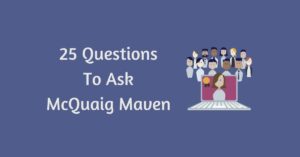As the lockdown eases, many organisations look to a return to the workplace. From hospitality through to banking, leisure to technology, workplaces will return to life. But how will people feel on their return, and what can organisations do to smooth the transition?

The post-furlough challenge
Almost a year ago, we closed down our office workplace and set up in our home offices. We now look to a reversal of this change over the coming months. Most of us have really missed working with our colleagues, clients and suppliers in person, but we have adapted to that change, some more successfully than others.
Undoubtedly the furlough scheme has been a lifeline for employers and employees alike. However, it does present challenges around returning to work and has become the poisoned chalice that no one wants. Some will suffer a loss of confidence on their return to work. Paying people to do nothing discourages them from developing their interpersonal skills and from taking personal responsibility for their self-esteem. It won’t be enough for employers to simply open their workplace doors again. They will need to take positive action to help their employees to re-engage in what could be a rather different workplace.
We need to adapt once again. The difference this time however, is that we have the opportunity to plan for the change. We have the chance to rebuild our workplaces and the relationships in them for the better. Whether that’s a physical office reset and re-organisation, or an interpersonal reset. We can evaluate how we work together and identify where we can improve and strengthen our workplace relationships.
Two key areas that most of us can improve in are our emotional awareness and emotional regulation. Both are dimensions of emotional intelligence and both highly influential in the harmony of our workplaces. That colleague who flies off the handle when under pressure? Or who you avoid when things aren’t going so well? Those are obvious examples of what we are talking about here. But even at a less extreme level our emotional regulation and emotional awareness have a significant impact on the quality of our workplace relationships.
Emotional awareness is the ability to:
- Understand one’s own emotions
- Be mindful of one’s own reactions
- Be approachable, reflective and intuitive
The skill or ability to be emotionally aware is golden, and fundamental to working well with other people. We all have different opinions, thought processes and ways of working. The ability to recognise that our way is not the only way is the first step toward accepting that different doesn’t mean wrong. ‘Different’ brings the diversity of thought that is essential for creativity and innovation at work. But ‘different’ can also cause conflict if we are not aware of our responses to it. Conflict when managed with self regulation is constructive. However if we are not aware of how our responses to conflict affects those around us, it becomes deeply unhelpful, unpleasant and even toxic.
Emotional regulation is the ability to:
- Respond appropriately
- Be composed under pressure
- Regulate their behaviour
- Be emotionally consistent
People who exercise emotional regulation are much easier to work with. They tend not to fly off the handle or retreat from constructive confrontation. They are reliable in that a colleague can approach them with a question or concern and expect to receive an appropriate and consistent response. It does not mean that they do not have high standards for both themselves and their colleagues, but that they display this expectation with composure and respect.
Develop your dimensions
The first step to developing emotional awareness and regulation is to understand them as skills which can be improved with assessment and practice, through training and coaching. To support the development of emotional awareness and emotional regulation we will run a series of online flowprofiler® dimension labs through 2021.
- Emotional awareness 27 May 2021 @ 1-2pm BST
- Emotional regulation 10 June 2021 @ 1-2pm BST
These one hour flowprofiler® dimension labs sessions will introduce your people to the concepts of emotional awareness and emotional regulation as skills that can be developed. Delegates will learn the fundamentals of emotional awareness and regulation and their impact in the workplace. flowprofiler® dimension labs are a great way to support the use of flowprofiler® across your organisation. They are also valuable as standalone sessions to get your people thinking differently about their emotional intelligence, and how they can work towards being the best version of themselves, no matter the challenges that each day may present.
Contact us
We’re a team who practice what we preach. 2020 was tough, but we made it through with perseverance, motivation and above all by supporting each other. Contact us to find out how we can help you to do the same.
flowprofiler® and associated marks are registered trademarks of Chalmers International Limited | All rights reserved
eqflow® and associated marks are registered trademarks of Chalmers International Limited | All rights reserved
resilienceflow® and associated marks are registered trademarks of Chalmers International Limited | All rights reserved
motivationflow® and associated marks are registered trademarks of Chalmers International Limited | All rights reserved





